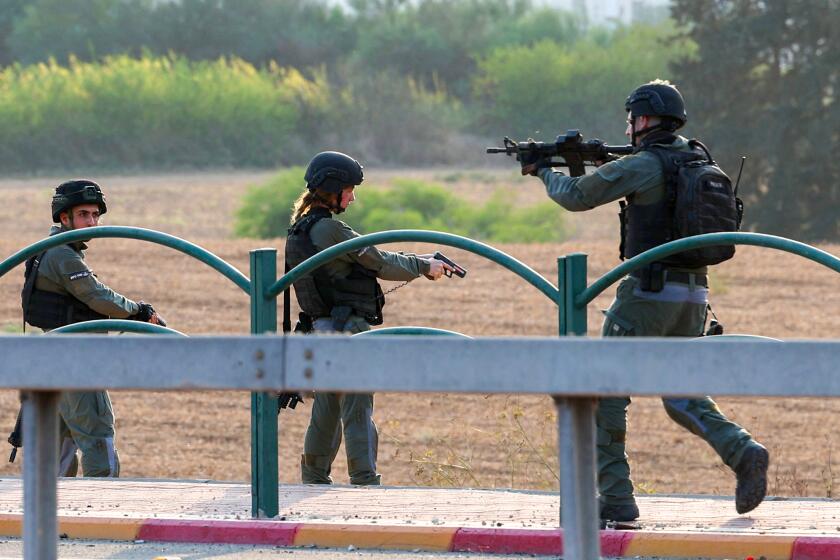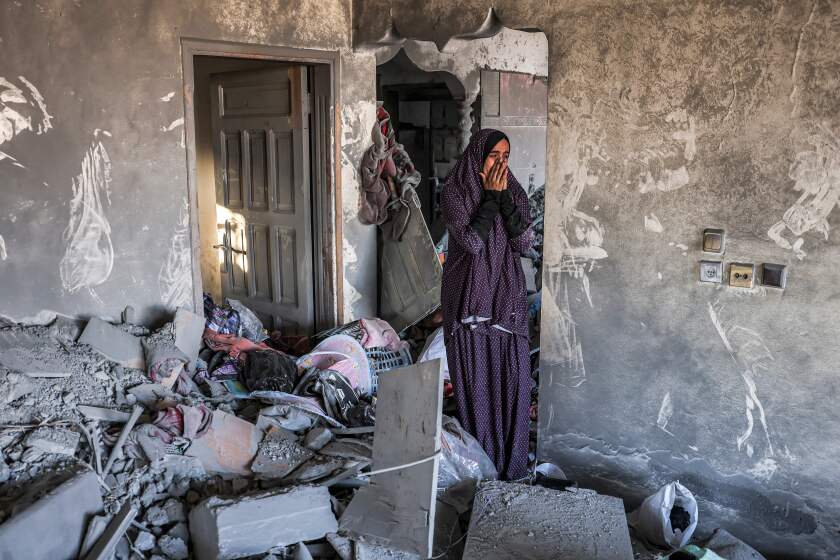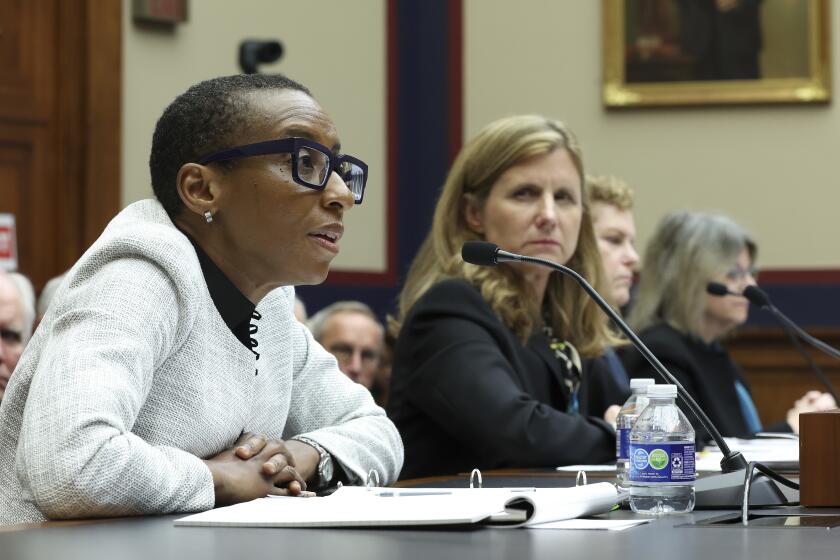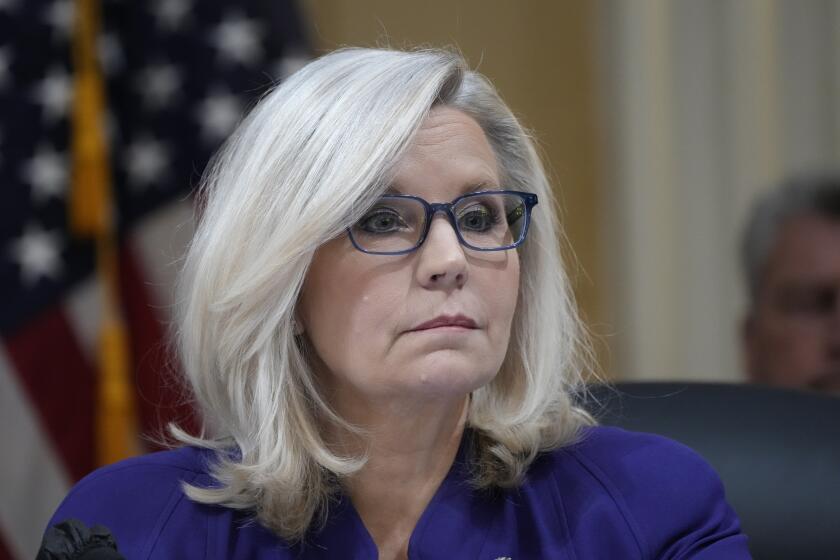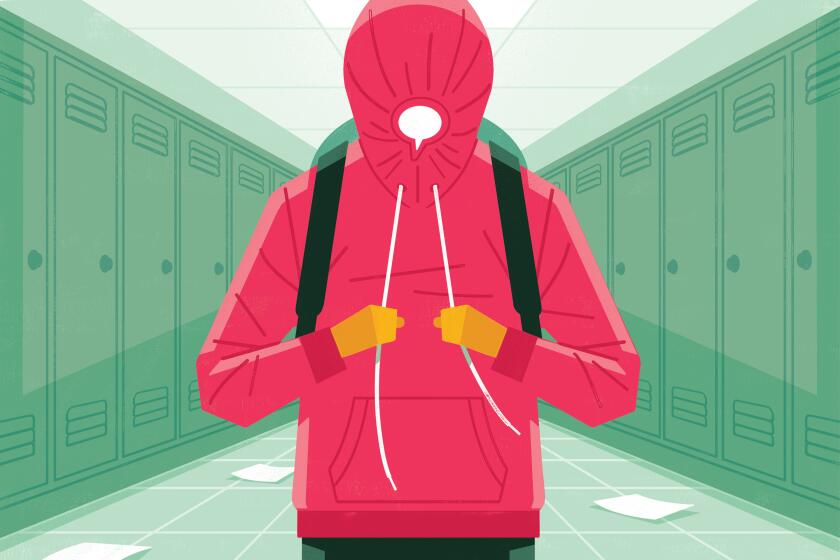
Every hour of every day of the last two months, aid agencies have pleaded for deliveries of humanitarian supplies to the Gaza Strip. We have been placed in the intolerable position of requesting permission to do lifesaving work.
Earlier this week, I wrote to the president of the United Nations General Assembly to inform him that the United Nations Relief and Works Agency’s ability to continue delivering its mandate in Gaza has become very limited. In my 35 years of work in complex emergencies, I would never have expected to write such a letter, which predicted the killing of my staff and the collapse of the mandate I am expected to fulfill.
Civilians in this war are pawns, and yet humanitarian aid has been made conditional. Humanitarian assistance is withheld or delivered according to political and military agendas to which the United Nations is not privy. Food, water and fuel are being systematically used as weapons of war in Gaza, as is disinformation. Attacking and trying to discredit humanitarian organizations such as the United Nations Relief and Works Agency is yet another means of waging war and compromising the humanitarian response, further weakening the protection of civilians and civilian infrastructure.
When the Israeli army reached Khan Yunis, my family fled for a fourth time, to Rafah. Now as I huddle in a room with 12 other women, my dreams of university seem like fragments of another life.
Hamas has absolved itself of any responsibility toward the civilian population. It has shamefully stated that full responsibility for humanitarian assistance toward civilians lies with the U.N. Israel has imposed a near-total siege on Gaza — inflicting collective punishment on more than 2 million people, half of whom are children. The meager supplies that Israel has been allowing into Gaza have little effect in the face of the overwhelming needs of an entire population.
Since the beginning of the war, Israel has forcibly moved more than 1.8 million Gazans from their homes, especially from the northern parts of the Gaza Strip. This is the largest forced displacement of Palestinians since 1948.
More than 270 people sheltering in UNRWA facilities have since been killed, and nearly 1,000 injured. Most of these shelters were located in the middle and southern areas of the Gaza Strip, which were thought to be safer. The sad reality is that Gazans are not safe anywhere: not at home, not in a hospital, not under the U.N. flag, not in the north, middle or south.
Now that the humanitarian pause has ended, what will be the fate of more than 2 million Palestinians besieged and holed up in a tiny area in southern Gaza?
If Gazans are forced into Egypt or elsewhere, they will only add to the 75-year-old Palestinian refugee crisis.
The United Nations and several member states, including the U.S., have firmly rejected forcibly displacing Gazans out of the Gaza Strip. But the developments we are witnessing point to attempts to move Palestinians into Egypt, regardless of whether they stay there or are resettled elsewhere.
The decimation of northern Gaza and the displacement of millions of Gazans to the south is the first stage of such a scenario, and it is already complete. The next stage is underway — forcing people out of the urban center in Khan Yunis and closer to the Egyptian border.
Bombardment and a tight siege are again creating conditions under which nothing more than mere survival is possible. The deprivation of humanitarian aid is key to this plan. After the destruction of the north, the destruction of the south is ongoing, except this time, people have nowhere to go.
In its two-tiered legal structure, strict movement controls and discriminatory land policies against Palestinians, the Israeli government has built a system that even some former Israeli officials describe as total apartheid.
Humanitarian agencies are again being asked to provide tents in designated “deconflicted” or “safe” areas in the south. But the reality is that unilaterally designating an area a “safe zone” in a war situation will not make it safer.
For many Palestinians the only option for a better future is to leave Gaza altogether. Judging by policy and humanitarian discussions underway, it is hard to believe that the Palestinians of Gaza who are displaced today will be allowed — or even willing — to return to their destroyed homes any time soon.
If this path continues, leading to what many are already calling a second Nakba, Gaza will not be a land for Palestinians anymore.
This is the last colonial war in the modern age, fought to establish the hegemony and the absolute rights of one people over the other.
A different trajectory can still be pursued, starting with a steady humanitarian cease-fire that leads to the release of all hostages, firm compliance with international humanitarian law by all parties, a freeze of Israeli settlements in the West Bank, and a genuine discussion about the future with a negotiated political solution, including a Palestinian state that encompasses the occupied Palestinian territory.
In parallel, there must be justice and accountability for both the atrocities of Oct. 7, including the taking of hostages, and the disproportionate killing of civilians and the destruction of Gaza. Without this there will not be peace and stability. The International Criminal Court should investigate and adjudicate evidence of alleged war crimes, crimes against humanity and genocide.
Governments around the world should act decisively. Otherwise international humanitarian law will become simply the law of the strongest. We must hold accountable those who deliberately infringe it, weaponize humanitarian aid and defame humanitarian organizations with the aim of weakening assistance and the protection of civilians and civilian infrastructure.
Imagining possible futures beyond Israel’s Jewish supremacy is a political act for me, rooted in my people’s history.
The original purpose of international humanitarian aid, a concept conceived after the First World War, was to alleviate the suffering of civilians during wars and conflicts. Today, however, humanitarian aid is a strategic dimension of foreign policy and diplomatic competition — an instrument of power and war.
In Gaza, humanitarian assistance is being manipulated to serve political and military objectives, another breach among many in this war. Humanitarian aid must be kept independent and impartial. To do so, we must remain focused on the principle of alleviating the suffering of civilians, whoever and wherever they are.
Philippe Lazzarini is the commissioner general of the United Nations Relief and Works Agency, which provides assistance and protection for Palestinian refugees in the Near East.
A cure for the common opinion
Get thought-provoking perspectives with our weekly newsletter.
You may occasionally receive promotional content from the Los Angeles Times.



